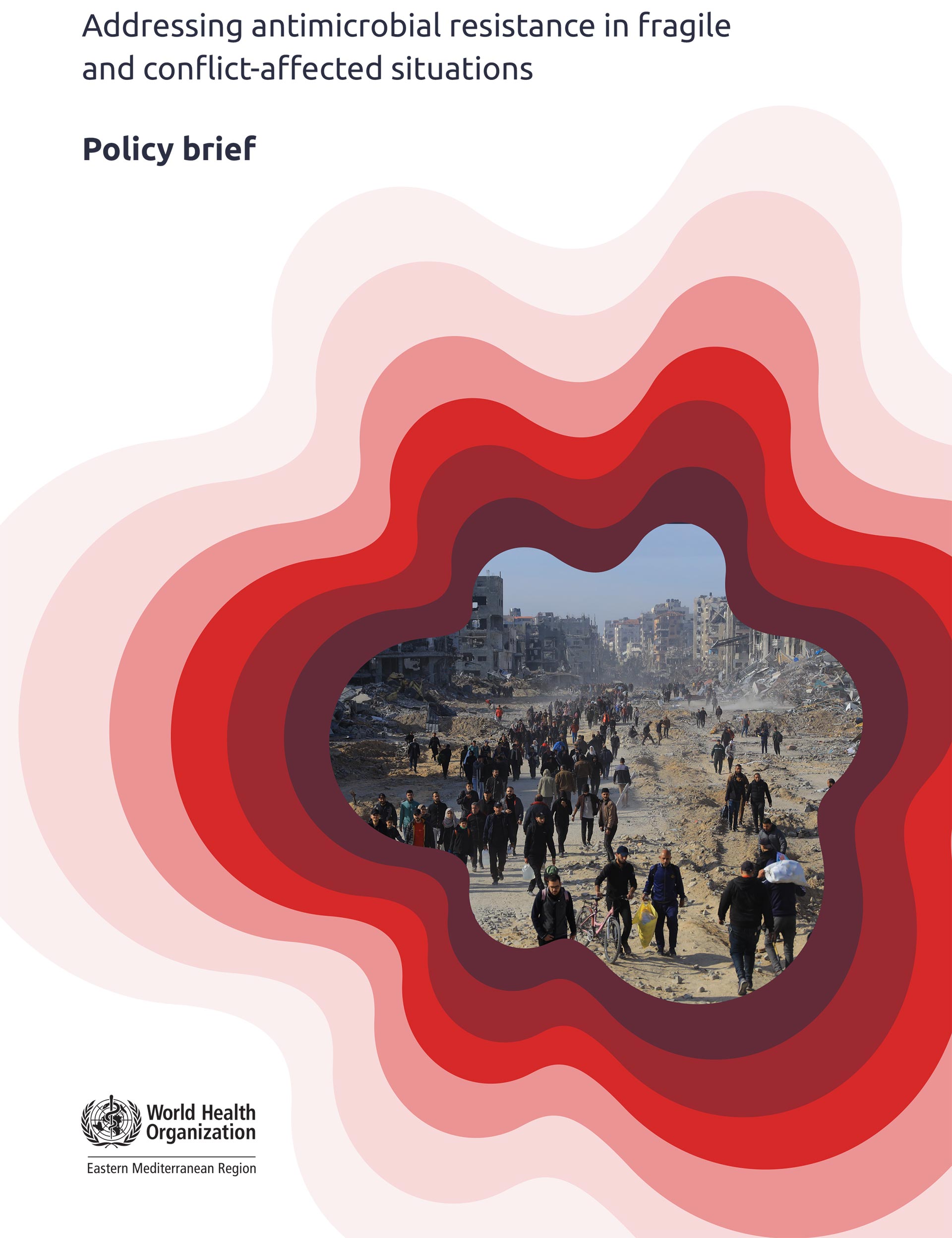 24 November 2025, Cairo, Egypt – The World Health Organization (WHO) Regional Office for the Eastern Mediterranean has issued the first WHO policy guidance document on antimicrobial resistance in conflict situations.
24 November 2025, Cairo, Egypt – The World Health Organization (WHO) Regional Office for the Eastern Mediterranean has issued the first WHO policy guidance document on antimicrobial resistance in conflict situations.
The policy brief on addressing antimicrobial resistance in fragile and conflict-affected situations is intended to drive investments and guide the activities of development banks, reconstruction and aid agencies, humanitarian entities, governments and UN agencies. As such, it represents a significant milestone in efforts to combat antimicrobial resistance which poses a growing threat to health security.
Globally, an estimated 4.71 million deaths were associated with bacterial AMR in 2021, including 1.14 million deaths directly attributable to it. This is projected to reach 8.22 million associated deaths and 1.91 million attributable deaths in 2050.
In the Eastern Mediterranean Region, which hosts 31.4 million of the world’s 67.7 million internally displaced people and accounts for 55 per cent of the world’s refugees, millions of people living through conflict, displacement and weakened health systems face heightened risks of infections that are harder to detect, harder to treat and more deadly.
The policy brief highlights the urgent need to integrate antimicrobial resistance mitigation strategies into humanitarian and development responses in fragile and conflict affected settings. It addresses the unique challenges posed by disrupted health infrastructure, population displacement and limited access to diagnostics, treatment and infection prevention and control.
“We must integrate AMR into humanitarian response, recovery and peacebuilding efforts, recognizing that health is both a bridge and a foundation for peace. And we must amplify local voices, ensuring that affected communities are not merely recipients of aid but active co-creators of sustainable solutions,” said WHO Regional Director for the Eastern Mediterranean Dr Hanan Balkhy. “Through strong partnerships and effective use of global and regional financing, we can help the most affected countries confront AMR.”
The policy brief offers a clear, people-centred framework grounded in the 4 pillars endorsed by Member States at the World Health Assembly last year: prevention, access, diagnosis and appropriate treatment. It outlines actionable interventions across 7 domains, from infection prevention and control and surveillance to community engagement and wider health determinants.
Read the policy here.








